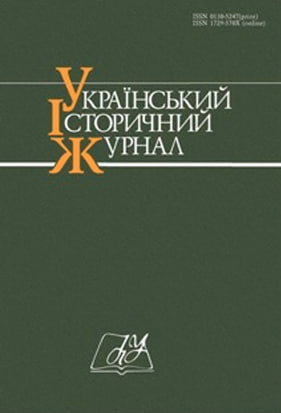Revolutions in Early Modern Civilization: The Parallels of Ukrainian and World Experience
DOI:
https://doi.org/10.15407/uhj2021.01.004Keywords:
Early Modern period, civilization, Ukrainian revolution of the 17th century, great European revolutions, comparative methodAbstract
The purpose of the proposed exploration is aimed at presenting the Ukrainian revolutionary segment as an organic component of a common Early Modern revolutionary cycle as an activator of radical changes in the civilizational space of Europe.
The methodology and strategy of the research are based on the complex involvement of the methods, principles, and the concepts of socio-humanitarian disciplines applied in the modern comparative practices. Its novelty is the definition of contact horizons and planes of intersections of the Ukrainian and other national revolutionary trends of Early Modern times, as well as outlining the heuristic perspective of the study of the National Revolution of the 17th century in Ukraine that corresponds to the theoretical achievements of the revolution studies.
The main emphasis is laid on the fact that the latest historiographical stage initiated a conceptual revision of the revolutionary processes of Early Modern period, both in terms of its general specificity and the interpretation of new theoretical approaches of each discrete revolution as a unique and simultaneously logical phenomenon. Unfortunately, the investigations of the Ukrainian revolutionary events of 1648–1676 remained outside of this general methodological mainstream for the well-known reasons. However, a comparative analysis shows that these events put on the agenda of Ukrainian political life the entire priority set of tasks that determined the essence of the Early Modern revolutionary process (national, state-building, civil-democratic, and social), proposing for their resolving suitable original approaches and thus integrally involving Ukraine into the establishment of a new civilization on the continent.
It is concluded that the accumulated empirical material, its analytical formulation in the context of the newest interdisciplinary methods quite objectively approves the suitability of inscribing the Ukrainian case into the general picture of the European revolutionary process of the Early Modern time and finding a suitable place for it in the contemporary classification schemes.


